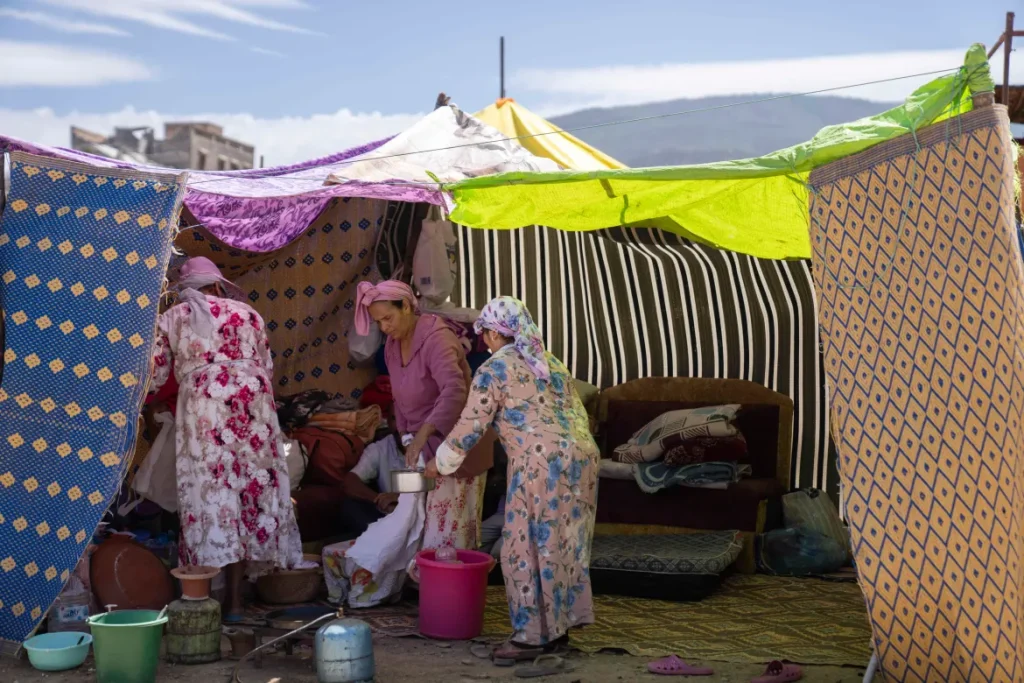Two years later, Morocco’s earthquake survivors are still homeless

Almost two years after a deadly earthquake tore through Morocco’s countryside, hundreds of families remain trapped in tents, despite the government’s declarations of a sweeping reconstruction process. Activists blame these failures on serious mismanagement and a “biased reconstruction process.”
On July 24, the Moroccan-friendly outlet Hespress reported on a joint statement from civic groups accusing the government of negligence and injustice. They reiterated long-standing demands for a full account of reconstruction funds and a verified list of aid recipients.
The September 2023 quake was the worst environmental disaster the Kingdom had experienced in decades. It flattened over 60,000 homes in villages across the High Atlas Mountains, tore up roads, and shook infrastructure.
Around 3000 people were killed, and 5,600 were injured, with most of the damage concentrated in the Al Haouz region.
While officials were quick to claim momentum, reporting as early as December 2023 that 57,000 reconstruction permits had been issued, NGOs and activists highlighted a different story.
They cited widespread inconsistencies in official figures, unfulfilled aid promises, and credible allegations of tampering by local officials during damage assessments and fund distribution.
A Reuters investigation the following September further affirmed suspicions. They reported that despite the high number of permits issued, only 1000 houses had been built a year into the process, leaving tens of thousands confined to make-shift shelters.
According to the Middle East Eye, many families have returned to their cracked houses, preferring to live in the ruins rather than endure the scorching summer heat and winter rains under tarpaulin.
The government’s strategy of “supervised self-construction”—which provides cash handouts to victims who must then manage their own rebuilding—has drawn widespread criticism for its unequal distribution, logistical obstacles, and weak oversight. Many report struggling to access basic services, particularly in remote mountainous areas where the damage was most severe
Moreover, some reported receiving only partial compensation of 80,000 dirhams despite losing their homes entirely, while others report receiving nothing at all.
There are also accounts of local officials skewing damage assessments, soliciting bribes, or excluding households without political or personal connections.
Meanwhile, the dissenting voices are increasingly imprisoned. In January 2025, activist Said Ait Mahdi, who led a group for victims of the El Haouz earthquake and has campaigned extensively for the reconstruction in the worst-hit areas, was jailed after highlighting the Kingdom’s stagnant efforts on social media.
Mahdi was charged with “defamation, insult, and the publication of false allegations aimed at infringing on privacy,” fined $1000, and jailed for 3 months– a sentence which was later increased to one year.
Hespress/ Middle East Eye/ Reuters/ Maghrebi
Want to chase the pulse of North Africa?
Subscribe to receive our FREE weekly PDF magazine













